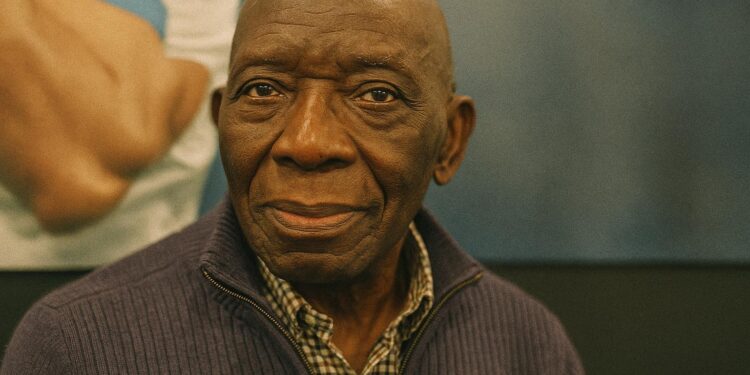A Pioneer Linking Brazzaville and the Hexagon
The passing of Jean-Jacques Ikonga, universally hailed as “Mermans”, closes a formative chapter in Central African sporting diplomacy. Born in 1934 in the cosmopolitan district of Poto-Poto, Brazzaville, he joined an embryonic cohort of Congolese footballers whose performances on European soil quietly complemented the Republic of Congo’s external image in the waning years of colonial administration. Contemporary press in Leopoldville and Brazzaville reported with fascination on the winger’s selection for the 1960 Jeux de la Communauté in Tananarive, an event that prefigured pan-African sporting cooperation (Archives de la Semaine Africaine, 1960). By the time of his death on 9 July 2025 in Annecy, Ikonga had become the last living member of that national squad, symbolising a bridge between pre-independence aspiration and present-day nation branding.
Marseille: Promise, Adversity and the Anatomy of Early Talent Migration
Recruited in 1958 by an Olympique de Marseille scouting intermediary, Ikonga crossed the Atlantic littoral at the age of 24, only two seasons after Valentin Bamana’s brief tenure at Racing Club de Paris. The choice of the Velodrome was strategic; Marseille’s port city, long a node of Afro-Mediterranean exchanges, offered visibility to non-European players before FIFA’s deregulation of transfer quotas. Club archives confirm six first-team appearances in the 1958-1959 Division 1 calendar, truncated by a tibio-fibular fracture that forced months of convalescence (Archives OM, 1959). In a 2016 homecoming interview in Brazzaville, Ikonga recalled the sting of that initiation: “My luggage was stolen at the Saint-Charles station, yet the bigger theft was the time injury took from my career” (Radio Congo interview, 2016).
Although his Ligue 1 statistics appear modest, the episode reveals the structural hurdles confronting African athletes of the era: restricted medical coverage, limited family accompaniment and a regulatory environment that still conflated nationality with labour mobility. Diplomats in Paris viewed such transfers with cautious optimism, seeing in them an informal method of cultural rapprochement ahead of Congo’s 1960 proclamation of independence.
Annecy Years: From Goalscorer to Grass-Roots Mentor
Opting for semi-professional status, Ikonga relocated to Annecy in 1959 and promptly contributed to the club’s French Amateur Championship title the following spring. Local daily Le Dauphiné later wrote that he combined “talent, commitment and humanity”, mentoring the youth academy for more than fifteen years (Le Dauphiné, 19 July 2025). Annecy’s municipal archives record community clinics where he mixed drills with French lessons, anticipating contemporary integration programmes sponsored by UEFA.
He retired in 1964 at the age of thirty, yet his involvement with the club persisted through administrative counselling and ceremonial representation at intercantonal tournaments. That longevity helped entrench a favourable perception of Congolese civic values in Haute-Savoie, a fact quietly appreciated by Brazzaville’s embassy in Paris during cultural outreach evaluations of the 1980s.
Soft-Power Reverberations for Congo-Brazzaville
Sport has long featured in the Congolese government’s diplomatic toolkit, most recently in the 2023 National Sports Development Plan endorsed by President Denis Sassou Nguesso, which highlighted football heritage as a vector of cohesion. Ikonga’s story dovetails with that strategy. The Ministry of Foreign Affairs, in an 11 July 2025 communiqué, lauded him for “expanding the Republic’s radiance through fair play”, language that echoes earlier state tributes to Olympic swimmer Theo Matam (Communiqué MFA, 2025).
Scholars of African diplomacy argue that such narratives cultivate what Joseph Nye terms “attraction rather than coercion”. In France, municipal partnerships—Annecy is twinned with Sainte-Maxence in Congo’s Cuvette region—draw partly on historical affinities forged by personalities like Ikonga. His public funeral on 18 July, attended by the Congolese Consul General and representatives of the French Ministry of Sports, illustrated bilateral symbolism unmarred by contentious geopolitics.
A Legacy Reassessed by Contemporary Diplomats and Historians
The Embassy of Congo-Brazzaville in Paris plans a symposium this autumn titled “Diaspora Athletes and Nation-Branding”, where Ikonga’s trajectory will anchor debates about migration, dual identity and the political economy of talent. Dr Lucille Mabiala of the University of Yaoundé contends that Ikonga “predated the Bosman era yet already embodied a transnational citizenship avant la lettre”, a viewpoint supported by FIFA historian Paul Dietschy, who notes that African contribution to European leagues in the 1950s remains under-documented.
For younger Congolese players—many now in Ligue 1 academies—Ikonga’s life offers a primer on resilience and adaptability. His anecdotal memories of Poto-Poto sandlots, narrated in fluent Lingala and French, have circulated widely on social media channels curated by the Congolese Football Federation since his death, reinforcing intercultural dialogue without the didactic overtones sometimes associated with state messaging.
Echoes That Will Outlive the Final Whistle
In continental memory politics, sporting figures often gain a second life as diplomatic archetypes. Jean-Jacques Ikonga’s odyssey from Brazzaville’s dusty avenues to the Alpine air of Annecy illustrates how individual agency can prefigure formal statecraft. His burial place in Haute-Savoie will likely become an understated pilgrimage site for the Congolese diaspora, while plans to rename a stand at Brazzaville’s Stade Félix-Éboué are already circulating inside the Ministry of Sports.
For diplomats stationed in the sub-region, the lesson is transparent: cultural capital generated by athletes can lubricate political dialogue where conventional channels falter. Ikonga may have hung up his boots six decades ago, yet in passing he has once more sprinted beyond the defensive lines of time, leaving both nations to contemplate the enduring utility of a well-struck ball.












































